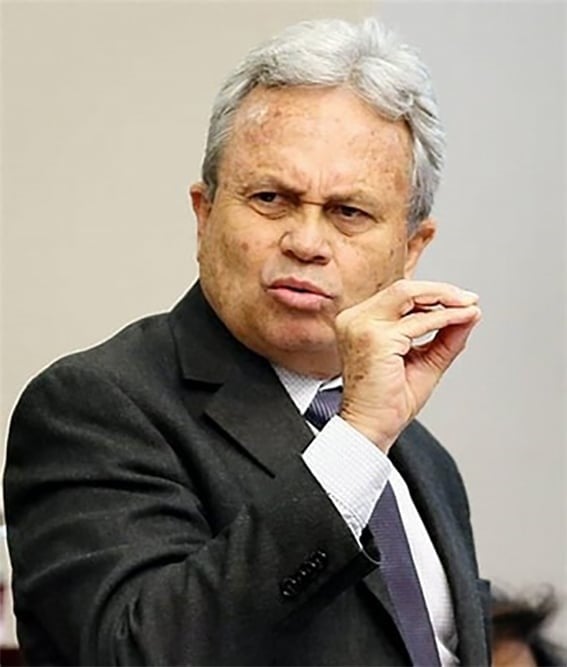(Trinidad Express) “We won the case!”
So gushed a joyful Finance Minister Colm Imbert who was yesterday given the green light by the Privy Council to proceed with implementing the Trinidad and Tobago Revenue Authority (TTRA).
Soon after the judgment was added to the London-based Privy Council’s website, Imbert posted on social media platform X: “The Privy Council just published its decision in the constitutional challenge to the Trinidad and Tobago Revenue Authority. WE WON THE CASE! This required tremendous effort against the relentless opposition from the UNC and the PSA. Now we can modernise revenue collection in TT!”
Earlier, the Privy Council had dismissed the constitutional challenge brought by the Public Services Association (PSA).
It found no breach of the Constitution in the transfer of revenue functions to the Authority, under the TTRA Act. The TTRA can therefore take effect.
The TTRA is meant to replace the Customs and Excise Division (CED) and the Inland Revenue Division (IRD). Under the TTRA Act, some staff who work on the revenue functions of the Authority will not be public officers. They will be employed by the Authority, and either be appointed by its board or the Minister of Finance, not the Public Service Commission (PSC).
Through customs officer Terrisa Dhoray, the PSA challenged this consequence, contending that the Act was unconstitutional insofar as it passes on revenue functions to the TTRA, to be done by private employees.
In delivering the judgment, Lady Simler stated: “Under the Act a significant proportion of staff employed to discharge the revenue functions devolved to the Authority will not be public officers within the meaning of the Constitution: they will be employed by the Authority and appointed either by the Minister of Finance (“the Minister”) or by the Board and not by the Public Service Commission. They will not therefore attract the protection of chapter 9 of the Constitution. The appellant (PSA/Dhoray) challenges this consequence of the Act. She contends that the Act is unconstitutional insofar as it devolves revenue functions to the Authority to be discharged by private employees.”
Effective safeguards
The PSA had also challenged section 18 of the act requiring employees at the IRD and CED to decide whether they will be voluntarily resigning from the Public Service, accepting a transfer to another public service department or agreeing to transfer to the TTRA. This section was suspended and extensions were given to facilitate the hearing of the matter.
In May, the Court of Appeal dismissed the PSA and Dhoray’s appeal against a decision delivered by High Court Judge Westmin James who found that the implementation of the TTRA was not unlawful.
The PSA took the matter to Privy Council and it was heard before Lords Reed, Lloyd-Jones, Burrows, Stephens and Lady Simler in July.
In a judgment delivered yesterday morning, the Privy Council stated , “There is no constitutional prohibition against the arrangements made by the (TTRA) Act … The transfer of revenue functions to the Authority pursuant to the Act, does not breach any implied provision or assumption on which the Constitution is based. The appeal must therefore be dismissed.”
The Privy Council expressed satisfaction that there are necessary mechanisms and effective safeguards to protect the staff and officers of the TTRA and members of the public from executive interference.
It also stated that there are safeguards that prevent either the Board or the Minister of Finance from playing any part in the day to day operations of the Authority as the Board has the responsibility for setting, and oversight of management policies for the TTRA but has no responsibility for any of its revenue functions.
The Privy Council noted that the Minister may only give general policy directions to the Board and is given no statutory authority to give directions to the TTRA. The Director General is responsible for the daily management and is required only to act on the “general directions of the Board”.










